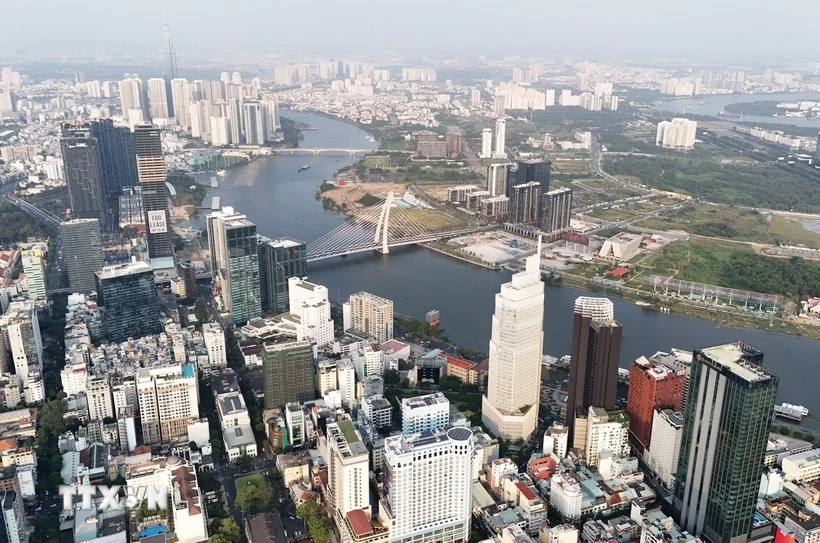
Central area of Ho Chi Minh City. (Photo: Hong Dat/VNA)
The contribution of the private economy to GDP growth and total social investment capital of Ho Chi Minh City has improved, but the scale of private enterprises is still not commensurate with the potential that can be achieved.
In order for the private economy to truly be the most important driving force, taking on a pivotal role in the city's economic growth target, businesses and experts recommend that there must be a breakthrough in institutions and effective policy implementation for businesses.
Fair competition
To build an independent, self-reliant, and self-reliant economy, we must rely on the private economy, specifically domestic private enterprises. This requires institutional breakthroughs, overcoming old frameworks, mindsets, and ways of doing things, creating conditions for businesses to dare to think and dare to act.
In recent dialogue programs with government and local leaders, the phrase mentioned many times by Ho Chi Minh City businesses is "fair competition."
Private enterprises do not ask for priority but need fair treatment in terms of policy, management, and access to resources to compete fairly with other economic sectors.
Mr. Nguyen Quoc Ky, Chairman of the Board of Directors of Vietravel, said that the Enterprise is very satisfied with the solution of converting from a management government to a service government that General Secretary To Lam mentioned in his recent article.
But to have a serving government, we must first change awareness, especially among those who do management work and implement policies at the grassroots level.
Besides, it is necessary to reform institutions and mechanisms continuously, strongly, with a roadmap and transparent division of responsibilities.
Competent authorities must also carefully study the impact and effectiveness before issuing new mechanisms and policies related to businesses; avoid issuing them emotionally, causing difficulties for businesses and then finding ways to solve them.
Mr. Trinh Tien Dung, General Director of Dai Dung Construction and Trading Mechanical Joint Stock Company, said that to promote growth and sustainable development, Ho Chi Minh City needs to focus on three main pillars of the economy: public investment, attracting foreign investment and promoting the potential of the private sector.
Specifically, prioritizing public investment in developing transport infrastructure, especially in major economic centers such as Ho Chi Minh City, helps circulate production and trade flows.
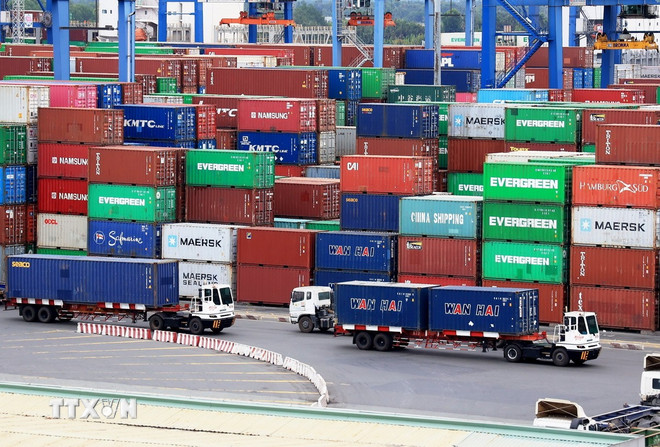
Container trucks operate at Tan Cang Cat Lai, Thu Duc city, Ho Chi Minh City. (Photo: Hong Dat/VNA)
Continue to attract foreign investment but must be accompanied by reasonable incentive policies, only prioritizing areas that domestic enterprises do not have enough capacity to develop.
At the same time, there is a mechanism to monitor the implementation of commitments on chain linkages and effective transfer of science and technology to ensure balanced development and avoid negative impacts on domestic enterprises.
“For the private economy, which has been identified as the most important driving force for economic growth, it is necessary to create conditions for them to access development resources. The most effective solution to promote this issue is to actively apply e-government and digital government to eliminate the request-grant mechanism in licensing, and apply technology to increase the accuracy of data,” Mr. Trinh Tien Dung emphasized.
Proposing some solutions to create a breakthrough for the private economy, Dr. Can Van Luc said that first of all, there needs to be consistency in thinking towards the private economy, considering the private economy as the "most important driving force" in economic growth.
Perfecting institutions, especially in improving the business investment environment by drastically cutting at least 30% of administrative procedures, business costs and work processing time.
Above all, it is necessary to create an environment of equal competition, ensuring that private enterprises fully exercise three basic rights: "property rights," "freedom of business" in industries not prohibited by law, and "right to fair competition."
Clear strategy
Along with trusting and assigning responsibilities to the private economy, it is necessary to have a strategy to develop the business force in both breadth and depth, that is, in terms of quantity and competitiveness.
Ms. Ly Kim Chi, Chairwoman of the Ho Chi Minh City Food and Foodstuff Association, informed that Ho Chi Minh City currently has about 400,000 individual business households, of which more than 20,000 households are operating very effectively with increasing scale and revenue.
If these business households are supported, guided and facilitated to transform into enterprises, Ho Chi Minh City will have a very strong business force.
According to Ms. Ly Kim Chi, individual business households that pay lump-sum taxes and are not transparent about their revenues and expenditures are contributing very little to the budget, in other words, causing revenue loss.
On the contrary, they also suffer losses when their customers are limited and they cannot participate in the official market due to lack of invoices and documents.
To encourage business households to convert into enterprises, there must be specific solutions such as exempting income tax for the first 3-5 years, applying a tax rate of 15-17% for micro-enterprises to nurture revenue sources and simplifying establishment and accounting procedures.
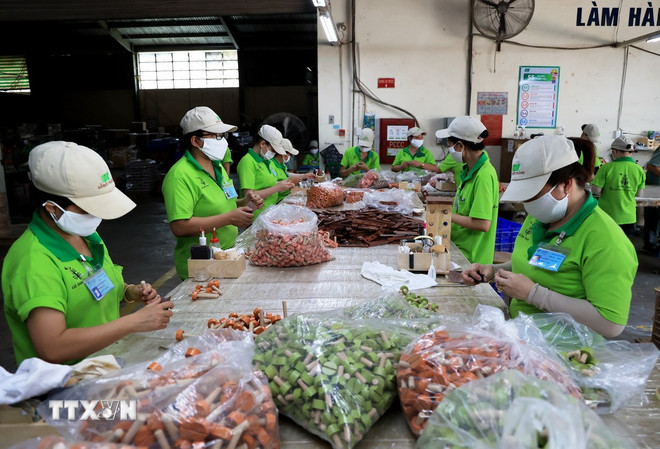
Producing children's toys at Duc Thanh Wood Processing Joint Stock Company, Go Vap District, Ho Chi Minh City. (Photo: Hong Dat/VNA)
Regarding the leading role of leading enterprises, Ho Chi Minh City has a group of more than 60 largest enterprises, accounting for only 0.02% in quantity but contributing up to 44% of total annual budget revenue.
However, the number of enterprises with national scale and reaching international level can only be counted on the fingers. With experience in observing the economic development roadmap of many countries around the world, Associate Professor, Doctor Tran Dinh Thien, former Director of Vietnam Economic Institute, affirmed: All large enterprises and corporations in the world started as small enterprises, making good use of market acumen and effective support policies of the State.
Ho Chi Minh City must promote its role in creating a favorable business environment, creating opportunities to access resources to nurture small businesses to gradually become large enterprises.
“Ho Chi Minh City cannot rely solely on conventional policies but needs breakthrough solutions to achieve its growth targets. With a large proportion of GDP and budget contributions, the city needs to be proactive in proposing favorable mechanisms and policies for private enterprises to promote their strengths and potential. On the business side, it is time to create pressure to change policies instead of having a “beg-give” mentality like in the recent past,” Associate Professor, Dr. Tran Dinh Thien emphasized.
Ho Chi Minh City leaders have repeatedly affirmed that private enterprises play an extremely important role in realizing the city's socio-economic development goals.
In meetings with the business community, Mr. Nguyen Van Duoc, Chairman of the Ho Chi Minh City People's Committee, emphasized that only by removing obstacles that hinder business operations can Ho Chi Minh City's growth potential be truly maximized. To do that, the Ho Chi Minh City government has been and will be changing its mindset, from an administration that asks for and gives to one that creates and serves, considering people and businesses as the central subjects.
The topic of unlocking resources for private economic development is mentioned frequently in socio-economic meetings and dialogue programs between city leaders and businesses.
To concretize the commitment to listen to and accompany businesses, Mr. Vo Van Hoan, Vice Chairman of Ho Chi Minh City People's Committee informed that Ho Chi Minh City is developing plans and strategies to promote the public-private partnership model, identifying businesses and the city government as partners, co-creating for a common goal.
Ho Chi Minh City has also gathered opinions and proposals from the business community and experts to recommend that the Central Government soon issue a new resolution to create conditions for the development of the private economy to become the most important driving force in economic growth.
For its part, the city will prioritize removing obstacles in investment procedures for projects, improving the quality of public services; promoting disbursement of public investment capital, especially for large projects and key infrastructure works.
In its long-term development strategy, Ho Chi Minh City focuses on prioritizing high-tech fields and industries; promoting innovation, green transformation, and digital transformation.
The city government believes that the dynamism, creativity, and daring of businesses will create a strong driving force to help the city enter a new era./.
Lesson 1: Ho Chi Minh City: The cradle of startups and business
Lesson 2: Overcoming difficulties to develop
(Vietnam News Agency/Vietnam+)
Source: https://www.vietnamplus.vn/thanh-pho-ho-chi-minh-xay-dung-vi-the-xung-tam-dan-dau-ca-nuoc-post1033870.vnp


![[Photo] Panorama of the Opening Ceremony of the 43rd Nhan Dan Newspaper National Table Tennis Championship](https://vphoto.vietnam.vn/thumb/1200x675/vietnam/resource/IMAGE/2025/5/19/5e22950340b941309280448198bcf1d9)
![[Photo] General Secretary To Lam attends the conference to review 10 years of implementing Directive No. 05 of the Politburo and evaluate the results of implementing Regulation No. 09 of the Central Public Security Party Committee.](https://vphoto.vietnam.vn/thumb/1200x675/vietnam/resource/IMAGE/2025/5/19/2f44458c655a4403acd7929dbbfa5039)
![[Photo] President Luong Cuong presents the 40-year Party membership badge to Chief of the Office of the President Le Khanh Hai](https://vphoto.vietnam.vn/thumb/1200x675/vietnam/resource/IMAGE/2025/5/19/a22bc55dd7bf4a2ab7e3958d32282c15)


![[Photo] Close-up of Tang Long Bridge, Thu Duc City after repairing rutting](https://vphoto.vietnam.vn/thumb/1200x675/vietnam/resource/IMAGE/2025/5/19/086736d9d11f43198f5bd8d78df9bd41)




















![[Photo] Prime Minister Pham Minh Chinh inspects the progress of the National Exhibition and Fair Center project](https://vphoto.vietnam.vn/thumb/1200x675/vietnam/resource/IMAGE/2025/5/19/35189ac8807140d897ad2b7d2583fbae)









































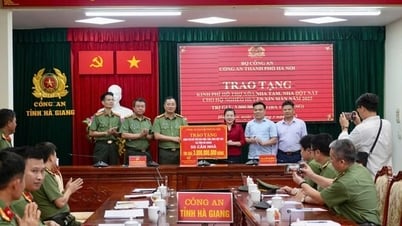
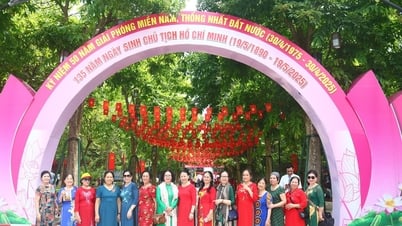

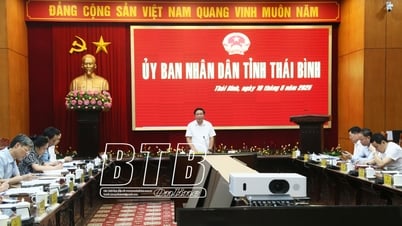







![[VIDEO] - Enhancing the value of Quang Nam OCOP products through trade connections](https://vphoto.vietnam.vn/thumb/402x226/vietnam/resource/IMAGE/2025/5/17/5be5b5fff1f14914986fad159097a677)





Comment (0)